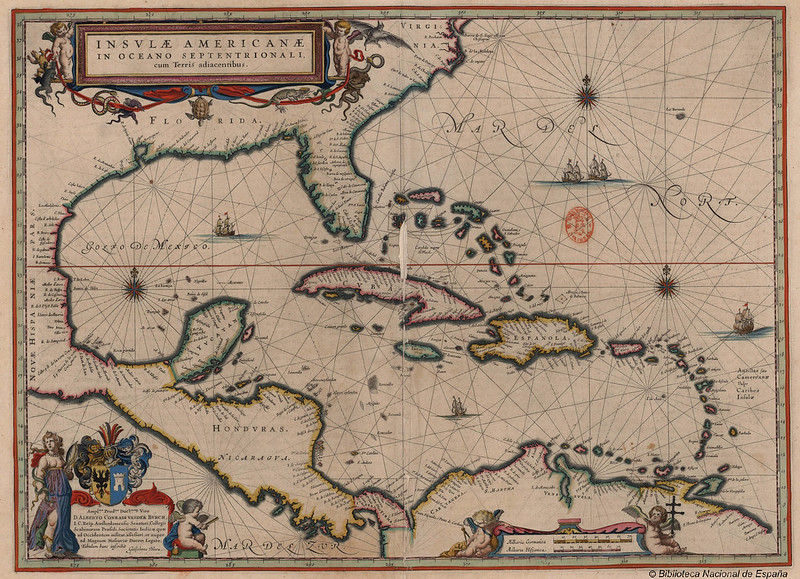
Introduction
Several years ago, I attended a talk featuring John Cobb and Robert Neville. Cobb has been an innovator within process studies, environmentalism, and religious pluralism. Neville’s work has impacted comparative religion, particularly studies of Confucianism. Their theological dialogue was framed as a discussion about the nature of God and the future of theology. During the Q&A, I asked about their approaches to studying non-Christian religions. Would they take seriously critiques of Western philosophy and Christian hegemony from postcolonial studies, critical race theory, and/or cultural studies? One speaker immediately objected, saying: No religious other wants to acknowledge they are victims of colonialism and imperialism. He went on: Religion is merely the human engagement with ultimate reality. Studying human beings experiencing oppression, genocide, and destitution apparently does not count as doing “real religious pluralism.”
What then counts as real scholarship in comparative theology? I argue that decoloniality unmasks hybridities, cosmopolitanisms, and inclusive pluralisms that support neocolonial, Eurocentric, and white supremacist operations that appropriate and plunder racialized bodies and religions. From its inception, religious studies and comparative theology were intimately connected to one another and to these operations. As such, they share similar theoretical and methodological problems that stem from them. I propose archipelagic thinking as a method for decolonizing comparative theology.
Religionswissenschaft and Orientalism
Despite the proliferation of religious studies scholars adopting critical, postcolonial approaches, our understanding of religions persistently replicates Euro-American hegemony. Two streams in religious studies have formed: world religions studied through philology, history, philosophy, and sociology; and primordial/primitive traditions studied by cultural anthropology, ethnography, and mythology. The two-streams approach allows asymmetrical distinctions to persist in valuations of metropolitan civilization, former Oriental empires, and colonies. These valuations, based on geographical, philological, and racial difference, formed a racialized hierarchy of nations that placed Euro-Americans at the top and “savage” tribal communities at the bottom. David Chidester has noted that historic world religions were positively studied as repositories of wisdom, while those religions deemed as savage were considered prehistoric artifacts requiring functionalist explanations. For example, compare treatments of Chinese religions to the religious cultures of Polynesia, particularly anthropological studies of cargo cults.
Furthermore, the contemporary world religions approaches, in commitment to objective descriptions and ever-expanding taxonomical hierarchies, assumes that religion as a human phenomenon can be separated from political economy, culture, and society. This reifies bifurcations of the sacred and secular, the private and public, and the material and ideal. The sacred and profane—popularized by Emile Durkheim, Max Weber, Mircea Eliade, and Peter Berger—persist in social-scientific methodology. A new paradigm is needed to correct these failures.
Current approaches to studying religion that do not take critical theory, comparative ethnic studies, and decoloniality studies seriously are complicit in the racialization of non-white bodies. Such racialization is the result of the instrumentalization of cultural/ethnic differences and the evaluation of religious cultures according to Euro-American norms. Euro-American epistemological and religious standards center texts as the main founts of wisdom and separate such studies from those that are pursued to better understand the cultural and spiritual proclivities of non-Western groups designated as premodern or primitive.
Comparative Religious Studies and Comparative Theology
Many 19th century religious studies scholars were theologians. Timothy Fitzgerald has argued that liberal ecumenical Christian theological presuppositions shaped many founding religious studies scholars like Rudolph Otto, Gerardus Van der Leeuw, and Ernst Troeltsch. Furthermore, Tomoko Masuzawa has argued that the world religions typology was present in both 19th century comparative theology and Religionswissenschaft. The latter was the academic study of religions that deployed critical and empirical methodologies that distanced it from both theological and philosophical appraisals of religions.
Comparative religion/history of religions in the United States adopted many of the methodological commitments of Religionswissenchaft, with a special emphasis on hermeneutics (both historicist and phenomenological). Marianne Moyart appeals to Paul Ricoeur’s hermeneutics as a methodological basis, while Paul Hedges notes Hans-Georg Gadamer’s approach justifies Francis X. Clooney’s comparative theology. Betül Avci along with Reinhold Bernhardt argues that comparative theology lies between the phenomenology of religion and confessional theology. Whilst Religionswissenschaft excluded theology and philosophy from the scientific study of religion, religious studies in the U.S. took a hermeneutical turn to admit more interaction between religious studies, philosophy, and theology. Thus, while Gadamer and Ricoeur are not part of Religionswissenschaft, their philosophical hermeneutics have been preceded by phenomenologists of religion like Van der Leeuw and Otto, and theologians who have adopted Eliade’s hermeneutical strategy like Paul Knitter and Hans Kung.
Clooney, himself trained in Indology, is dependent on the history of religions methodology for his own comparative theological reflection. S. Mark Heim remarks that comparative theologians study a second religious tradition through religious studies and confessional programs. Keith Ward extends Max Weber’s antipositivism and limits the scope of his comparative theology to scriptural religions. He appeals to rationality and scientific knowledge when negatively evaluating “primitive” religions in comparison to scriptural religions. His account of revelation privileges Christianity and other scriptural traditions while arguing for the inadequacy of “primitive” traditions. Thus, for many comparative theologians, comparative religious studies research and methods have significantly shaped and informed their comparative theological projects.
Deconstructing Eurocentric Comparative Theology
Despite assertions that comparative theology begins with mutual respect and takes the religious other seriously, its three major approaches inherit the problems with comparative religion mentioned in the previous section. The first, pioneered by John Cobb and David Griffin, utilizes process philosophy as a metaphysical grounding to relate disparate religious traditions. It examines Christianity’s compatibility with Asian religious traditions, vaguely aiming for mutual transformation. The second approach, put forward by Francis X. Clooney, advocates deep intertextual reading across traditions. It privileges the text as the locus of study and avoids constructive claims. The third approach, exemplified by Robert C. Neville, follows John Hick and Max Muller’s perennialist hypothesis, examining the compatibility and correspondence of “ultimates” in different traditions, as well as the pragmatic implications of bridging Eastern and Western philosophical discourses.
By deeming racialized practitioners as inauthentic, comparative theologians reduce their studies of religious others to a hermeneutical and philological exercise guided by Eurocentric historicism.
These approaches assume Western philosophical or Christian systematic categories to be universal. Imposing categorical/typological rigidity onto traditions reduces them to essences and functions. Masuzawa has demonstrated that rigid typologies discursively maintain European imperial hegemony. Comparisons driven by alleged normative categories such as the “most ultimate” domesticate and appropriate neocolonial bodies, epistemologies, and wisdom for the Euro-American scholar’s utility. Furthermore, assuming that the identity of the other is transparent to the scholar facilitates their subjectivation. Comparative theology does not speak to the material conditions of present-day communities, sometimes only tracking the theologian’s own transformation. Indeed, some cross-textual studies are critical of historical practitioners and religious communities that deviate from texts. By deeming racialized practitioners as inauthentic, comparative theologians reduce their studies of religious others to a hermeneutical and philological exercise guided by Eurocentric historicism. Oral traditions and “little traditions” are glossed over. Christianity remains centered as the primary interlocutor in comparative theology.
Decoloniality Beyond Idealism
Adapting Marx’s words, religious studies scholars often seek merely to interpret the world through philological and hermeneutic exercises. The point, however, is to change it. Walter Mignolo writes, “[D]ecoloniality has changed the terrain from aiming at forming sovereign nation-states (decolonization) out of the ruins of the colonies to aiming at decolonial horizons of liberation (decoloniality) beyond state designs, and corporate and financial desires” (125). While decolonization resulted in independent nation-states, Achille Mbembe has argued that the postcolony is a neocolony in a globalized, neoliberal present. Religiocultural, racialized others are subjectivized, commodified, and socialized as auto-exploiting achievement-subjects.
Critiquing overly positive notions of relationality, archipelagic thinking overcomes neo-orientalist romanticization and taxidermical preservations of the indigenous or primordial.
Who does the work of decoloniality? What is decolonization? Etic/emic approaches are often implicitly assigned: Black, Indigenous, and People of Color (BIPOC) scholars are assumed to be doing emic work, providing yet again “raw data” for etic scholars perpetuating whiteness to objectively analyze, evaluate, and theorize upon. BIPOC scholars are accused of subjectivity, producing scholarship bound to their racialized bodies. Religious “others,” like racialized bodies, are ontologized and essentialized in subjectivization. Epistemic decolonization is only the beginning of decoloniality. To proceed, decolonial scholars must overcome the rigid emic/etic binary. They must resist totalizing/reductive typologies and overcome atavistic thinking by seeing fragments and partial objects as sites of resisting subjection and ontologization. One must, as Fred Moten echoes Edouard Glissant, “consent not to be a single being” (xv).
Archipelagic Thinking
Archipelagic thinking offers a methodology to decolonize comparative theology. Derived from Glissant’s writings on the archipelago, créolité, and antillanité, archipelagic thinking resists the atavistic thinking found in Euro-American theoretical production and social consciousness. The archipelagic—modeled on the fragmentary, constellated, and rhizomatic Caribbean—critiques totalizing ontology, epistemology, Manichean logic, and forms of identity grounded in ethnocentrism, nation-states, or rigid religiocultural typologies. Dictee exemplifies archipelagic thinking in literature through the entanglement of a polyvalent assemblage of voices with a multiplicity of readers with polysemous immersions into the various textual mise-en-scène.
Dianne M. Stewart, M. Fadeke Castor, and Monica A. Coleman exemplify this approach in comparative religion/theology. Coleman theorizes African American religious pluralism as challenging canonical white scholarship on religious pluralism that focuses solely on imperial world religions through a Christian interlocutor and focuses on texts at the expense of the lived experience and embodied spirituality of non-white religious practitioners. Coleman argues African American religiosity is a pluralistic assemblage drawing from the fragments of multiple traditions. Her scholarship examines the theological, cultural, political, and the historical dimensions of religiosity while rejecting ontologized identities. According to Susan Gillman, archipelagic thinking problematizes imperialism and resists conventional, predictable comparisons. The endless archipelagic facilitates inexhaustible relation, resisting an ontology of comparison and hierarchical evaluations. Relations between objects are asymmetrical, affected by hierarchical valuations. Critiquing overly positive notions of relationality, archipelagic thinking overcomes neo-orientalist romanticization and taxidermical preservations of the indigenous or primordial.
Decolonial comparative theology examines hybrid formations engaged in material struggle against neoliberalism and neocolonialism in religious studies and in the broader spiritual marketplace.
A new theoretical toolkit for constructing decolonial comparative theologies overcomes mimicry of the colonizer’s intellectual discourse and toolkit. Rather than celebrating ambivalent colonial relations, it critically reappraises hybridities. Claude Levi-Strauss defines hybrid bricolage as the ideological residue of mythical thought or the “fossilized evidence of history” (13) rather than the material conditions and lived realities of decolonial assemblages. Mimicry in some [neo]colonial hybridities is not emancipation for the colonized, but, as Nigel Gibson puts it, “at most that of the enfranchised slave” (281).
Decolonial comparative theology examines hybrid formations engaged in material struggle against neoliberalism and neocolonialism in religious studies and in the broader spiritual marketplace. Commodified religiocultural resources alienate racialized subjects from counterhegemonic memories and practices, imposing cultural amnesia on racialized bodies: absolute rupture and severance from spiritual embodiments of the ancestors. Neocolonial subjects are passive consumers unable to reconcile the rupture between depoliticized meditation or yoga sessions and their own political commitments.
Archipelagic thinking bypasses the Euro-American interlocutor claiming to “take seriously the religious other” by reducing the other to a textual abstraction whose materiality is domesticated and appropriated for Euro-American and imperial ends. Opting out of the Manichean logic of metropole/colony comparisons, archipelagic thinking immerses itself in the decolonial discourse of [neo]colonized intersubjectivities that are actively deconstructing the ideological superstructure of white supremacy, neoliberal cosmopolitanism, and capitalism. It engages in decolonization of the material conditions of destitution, exploitation, and poverty that accompany the neocolonial capture of racialized bodies. Decoloniality appeals to Glissant’s opacite as a liberative praxis from repressive ontologies and auto-exploitation. Without liberation from imperial regimes of knowledge in all authoritarian and nationalist polities, decolonization cannot be achieved. Lastly, archipelagic thinking breaks from imperial Western and East Asian humanisms and moves towards posthumanist assemblages liberated from the desire to be repressed by [neo]colonial authority. Decolonizing comparative theology via archipelagic thinking thus engages in a material struggle to liberate racialized bodies from interpellation, commodification, and domestication and improve the material condition of posthuman assemblages.

